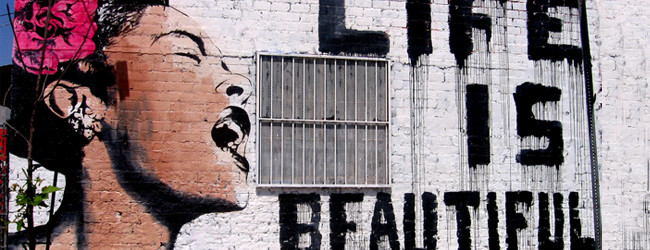
This is the latest article in the popular Blues Law series by lawyer, author, and radio personality Brian Lukasavitz, “The Blues Attorney”, that explores interesting and landmark law cases related to the blues genre.
America’s history of censorship of music dates back even further than the First Amendment’s right to Free Speech. While the Amendment I, of the U.S. Constitution prohibits Congress from “the making any law… that abridges the freedom of speech”, this freedom does not apply to the private sector. In 1735, when the first song in the Country was banned, the pattern was established for music to be censored on moral and political grounds, usually on the basis of protecting society from indecency. Allusions to overt sexuality, profanity, violence, drug use and political expression based on racial equality have all been reasons for attempting to remove songs from the marketplace. Blues and rock n roll artists have often been victims of censorship. Big Joe Turner, Tampa Red and Hank Ballard all had songs released that were deemed inappropriate for the airwaves, but no artist bounced back as successfully as Billie Holiday.
Billie Holiday was one of the most versatile vocalists all of time. As a singer she was adept at singing blues, jazz and pop standards, and did so with success from the mid 1930’s through the late 1950’s. Though not known for singing political songs, one song stands out in her vast career as being one of the first protest songs and pre-dates the civil rights movement. The song, of course, was her 1939 release, “Strange Fruit”.
The song was originally inspired by a photograph and news story about lynching in the South. The lyrics are both haunting and beautifully poetic at the same time:
Southern trees bear a strange fruit,
Blood on the leaves and blood at the root.
Black body swinging in the Southern breeze,
Strange fruit hanging from the poplar trees.
Originally written and published as a poem by Abe Meeropol (pseudonym; Lewis Allan), he set the poem to music and brought it to Barney Josephson, owner of the Café Society club. Josephson persuaded Holiday to perform the song at the end of one of her shows. The reaction of audience was so emotional and overwhelming Holiday began performing it as the finale to all of her shows. Holiday’s label had a different response altogether. Fearing the reaction of southern music retailers and the affiliates of the Columbia Records/CBS-owned radio stations, Columbia Records refused to allow her to record the song. After some negotiating, an arrangement was worked out between Columbia Records and the independent label; Commodore Records.
The reaction to the recording was as polarized as the response to the initial live performance and that of Columbia Records. The recording sold very well in Northern urban markets, however, radio stations had a much different response. Many stations across the country completely banned the song altogether, while many other simply ignored the song in attempt to avoid any controversy. While it is difficult to prove, despite the high number of record sales, at the height of it’s popularity, the song received no radio airplay in the Southern and rural areas of the country. Shortly after the songs release, Time Magazine denounced it as “a prime piece of musical propaganda”. According to interviews with Billie Holiday, she was often prohibited from performing the song in Southern venues, and when she did, there was always “trouble”.
While some censored music slips into obscurity, Strange Fruit took on a life of its own. Holiday continued to perform the song throughout her career. It ultimately sold over one million copies, making it her biggest selling single of all time. Numerous recording artists have covered the song and it has inspired both a novel and an opera. In 1978, Holiday’s version was inducted into the Grammy Hall of Fame. The song would also receive honors from the National Endowment for the Arts, as well as the Recording Industry of America. Eventually, even Time Magazine would change their tune regarding Strange Fruit, naming it in 1999 the “Song of the Century”. In 2002 the Library of Congress added the song to the National Recording Registry. Strange Fruit, indeed!


